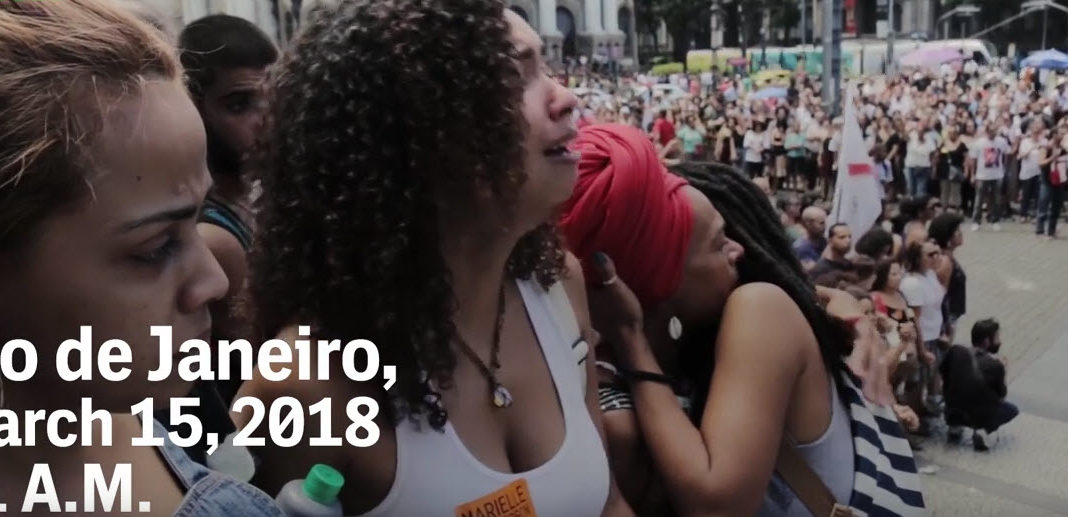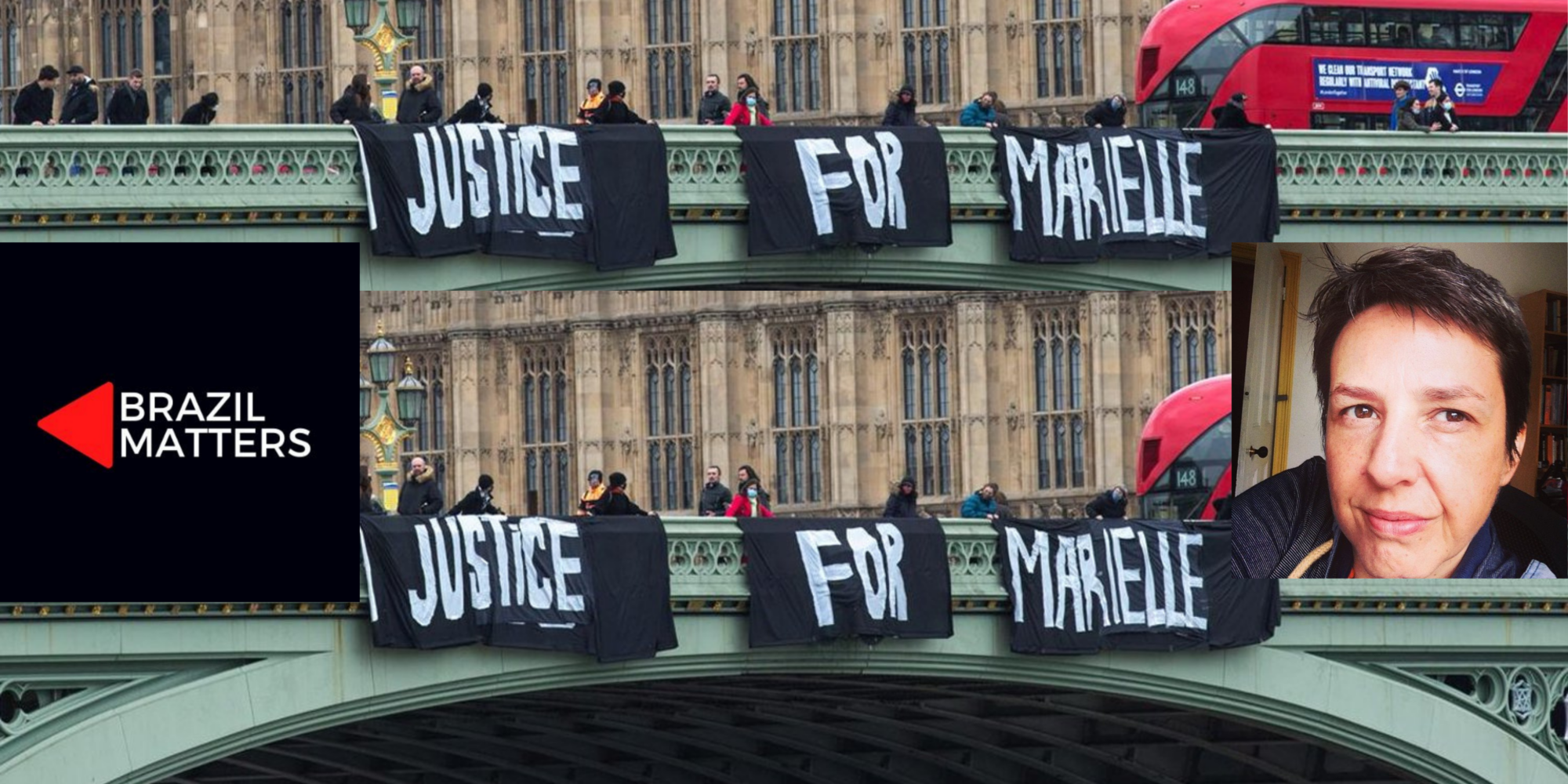The murder on 14 March of Marielle Franco, a young black city councillor and human rights campaigner, has deeply traumatized Rio de Janeiro, a city so cheated by the failure of mega-events such as the World Cup and Olympics to deliver lasting social change, and so bitterly accustomed to violence. Political colleagues and family members speak out about the murder of Marielle. Video: SBT So far, no arrests have been made and Franco’s left-wing PSOL party and supporters are now fighting attempts by right-wing commentators to smear her reputation with claims that she ‘collaborated’ with ‘bandidos’, and assertions that her murder proves the need for the military intervention of which she was so vocal a critic. Ammunition used in the crime has been tracked to a consignment bought by the federal police in 2006, according to news reports. https://www.youtube.com/watch?v=ZlOS8qoFhuA Now why would that be? Only Jair Bolsonaro has made no comment about the death of Marielle. Video: Midia Alternativa President Michel Temer tweeted that Franco’s murder was ‘an attack on democracy’. Jair Bolsonaro, the extreme right-wing presidential candidate who has openly espoused homophobia, has remained silent. By now some facts about the murder are well-known. Franco, 38, was shot dead as she returned home from an event in central Rio on Wednesday night. Unknown assailants pulled up and fired nine shots through the tinted-glass window of her car, killing Franco and her driver, Anderson Gomes, 39. This manifestly targeted assassination came days after Franco, who grew up in the favela complex of Maré, had accused military police of killing two young men and terrorizing residents in the low-income community of Acari. But Franco, who had recently been appointed to a city council commission charged with overseeing the military intervention ordered by Temer to restore order, had long spoken out against military police violence in the favelas, home to around a quarter of Rio’s population. Her warning that the army occupation would lead to deaths and human rights abuses was based on her experience of activism over many years. It is impossible to overstate the impact of her death on the communities for whom she was the lone voice at the table of Rio’s political establishment. At a demonstration outside the council chamber in Rio last Thursday people openly wept and held each other in silence as though they could simply not take in the loss of ‘Mari’, or accept that the hope she represented had been so cruelly extinguished.
She represented every minority
In defying her background to get elected as a PSOL councillor in 2016 – with the fifth largest majority of the 70 contested seats – the ground-breaking Franco was a pioneer for women, for marginalized communities and minorities across Rio. ‘We are devastated. Marielle was a black, gay woman from the favela complex of Maré and represented every minority – and yet she got elected,” said Karen Aquino, a 31-year-old psychiatrist attending a demonstration in the city centre. ‘This is meant to show us that the marginalized are not meant to rise through the system. If you do, this is what will happen to you. You will be stopped. I too am a black lesbian, so what does this mean for me?’ The loss of Franco is a body blow to the black women’s movement, and to the younger generation of activists who looked up to her. On the night she died, she had been attending an event called ‘Black Women Moving Structures’. Gabriele Roza, a 21-year-old journalist, had been at the same event to present a project on encouraging more black women into politics. ‘It should have been a happy time, the birth of a project to encourage black women to participate in politics. Instead, it was a death – an end’, she said.Marielle was not just any black woman politician. She was the black woman who transcended her background and broke through the barriers and inspired all of us.Theresa Williamson, director of favela advocacy NGO Catalytic Communities and a supporter of Franco, said: ‘This has to be a turning point. The situation is beyond unsustainable’. One of Marielle’s final tweets asked: ‘How many more need to die for this war to end? Rio de Janeiro has waged a war against its poor, black favela population since its founding. The military police have not been reformed in 200 years … nothing has changed in 200 years. The city’s oldest favela marked its 120th anniversary last year – still with rudimentary services. Do you think it’s an accident or mishap that in 120 years, 24% of the city’s population has been shuffled between politics of neglect and repression?’
The murder of Marielle was a cowardly attack on democracy, on us, on Brazil … they killed her because she embodies what is intolerable for the cowardice that rules this country: her own emancipation, the resistance of the favelas, the emancipation of so many black women who see themselves in her -Renato Roseno, PSOL state deputy in northeastern Ceará and Franco’s colleague


